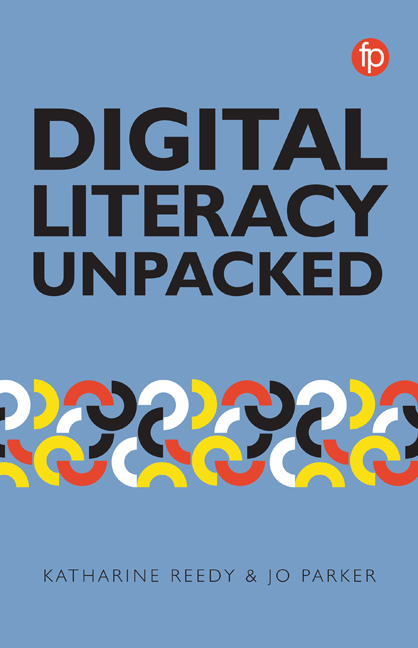Book contents
- Frontmatter
- Contents
- List of figures and case studies
- Foreword
- Notes on Contributors
- Introduction
- Part I Approaching Digital Literacy
- Part II Learning in a Digital World
- 4 Digital Literacy in UK and European Schools: Enhancing School Children's Motivation to Read for Pleasure
- 5 Digital Games: Providing Unique Digital Literacy Challenges in Childhood
- 6 Students in the SADL: Lessons From LSE's Digital Literacy Programme
- 7 Copyright and Digital Literacy: Rules, Risk and Creativity
- Part III Developing Staff Digital Literacies
- Part IV Digital Citizens and Workers
- Conclusion
- Index
5 - Digital Games: Providing Unique Digital Literacy Challenges in Childhood
from Part II - Learning in a Digital World
Published online by Cambridge University Press: 24 September 2019
- Frontmatter
- Contents
- List of figures and case studies
- Foreword
- Notes on Contributors
- Introduction
- Part I Approaching Digital Literacy
- Part II Learning in a Digital World
- 4 Digital Literacy in UK and European Schools: Enhancing School Children's Motivation to Read for Pleasure
- 5 Digital Games: Providing Unique Digital Literacy Challenges in Childhood
- 6 Students in the SADL: Lessons From LSE's Digital Literacy Programme
- 7 Copyright and Digital Literacy: Rules, Risk and Creativity
- Part III Developing Staff Digital Literacies
- Part IV Digital Citizens and Workers
- Conclusion
- Index
Summary
Introduction
As they become more accessible and more mobile, digital technologies are increasingly crossing the contexts of home, school, workplace and communities, and offering an expanding range of educational and social affordances (Haddon and Livingstone, 2014). This is a challenge for families and those seeking to better understand, engage and implement digital games in children's education. Technology has become an important feature of family life in many households with children using some form of device with a screen every day (Gutnick et al., 2011; Holloway, Green and Livingstone, 2013; Vandewater et al., 2009. Children use and enjoy technology more and more, in a world of expanding technologies, access and media forms (Buckingham and Willett, 2013; Tyner, 2009; von Feilitzen and Carlsson, 2000). Ongoing improvements to technology have enabled children to access new media and technologies from an early age, and the YouTube clip of a baby manipulating a touch screen is all too familiar. Leathers, Summers and Desollar-Hale (2013) argue that babies who have had ready access to touchscreen technologies since birth learn to point at screens by the age of 10–14 months.
Children do not need to wait until they can operate a keyboard and mouse to begin interacting with digital media. Today, pre-verbal, nonambulant infants have parents who are comfortable with their children using these child-friendly touch screen devices. Nikken and Schols argue, ‘through age 7, children are honing their fine-motor skills, which makes it gradually easier for them to manipulate touchscreens, small keys, gadgets and controllers’ and are ‘adept at using symbols, playing pretend games, interpreting relevant cues in their social environment, and gain knowledge of story grammar, which is essential for the formation of interpretive schema for processing more demanding media content’ (2015, 3423).
This chapter takes a focused look at the emerging opportunities provided by digital games and provides a rationale based on research to encourage individuals and organisations to consider games and gaming as mainstream channels of digital literacy engagement.
Digital childhoods
Digital games are an integral part of children's environments, with findings pointing to continued growth and regular game play across a range of devices, driven by curiosity, challenge and interactivity (Blumberg and Fisch, 2013).
- Type
- Chapter
- Information
- Digital Literacy Unpacked , pp. 63 - 82Publisher: FacetPrint publication year: 2018



